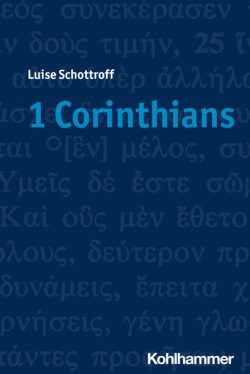Читать книгу 1 Corinthians - Luise Schottroff - Страница 16
На сайте Литреса книга снята с продажи.
5. Paul the Mystic
ОглавлениеGod’s Spirit, the holy Spirit, dwells in the bodies of those who belong to God (6:19). Paul speaks in the plural when he speaks of experiences with God’s Spirit: »We« all, the whole congregation, are able to put into words wisdom that God reveals, indeed, even to speak of it publicly (2:6–10). But »we,« the congregation, also speak the language of angels (13:1; 2:6–16) and search out the hidden depths of God. The language with which Paul speaks about the divine Spirit is boundless (»all,« 13:7, for example) and enthusiastic. Paul describes in a similar way his own experiences of God (15:8–10; 2 Cor 12:2–5). But he does not restrict these ecstatic experiences of God, which change one’s whole life, to himself or to a small group of people. Pauline mysticism is a democratic mysticism (13:1–13).
The messianic community in Corinth consists predominately of a few who are educated, of those whose work is hard and of people damaged by violence. What a contrast between this superabundant trust in God and their everyday reality! Their experience of God, the certainty that God’s Spirit dwells within them, was their source of strength. Paul didn’t bring them a new »teaching.« He and other men and women taught them to search for God in the Torah and in their lives and to draw strength from this source.
The First Letter to Corinth is an arduous read if it is undertaken in search of opponents, strife and doctrinal controversies. The letter looks very different if one listens to, and takes seriously from the start, the language of delight and happiness over their great riches. 1:4–9 is not a stereotypical thanksgiving one finds at this place in letters, but a prayer of praise transformed into an address to the brothers and sisters. You are not lacking in any gift! (1:7). Is that polite exaggeration, a linguistic tactic? It would be a shame to read in this way, for the riches would remain undiscovered. Already this first section of the letter is pervaded by words that express fullness, indeed boundlessness: you are rich—in every respect (1:5), in everything. This language permeates the letter. It is worthwhile to undertake your own search for traces of the mystic Paul, of the women and men mystics in Corinth, of a messianic group in this harbor city in Greece in the middle of the first century.
